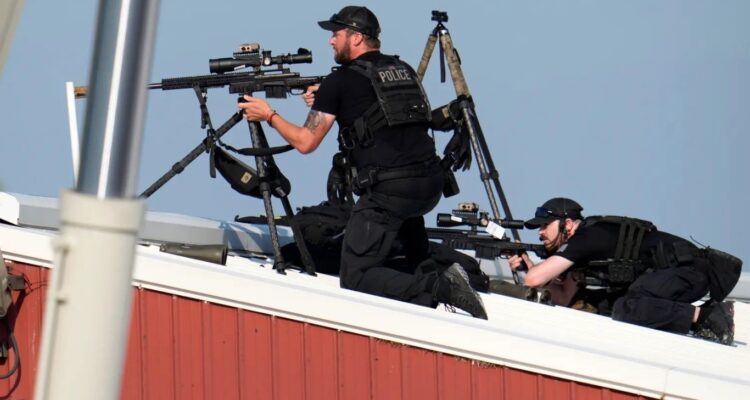Secret Service leadership not only failed in their task (which historically is unsurprising) but decisions were made that exposed Trump.
By Daniel Greenfield, Frontpage Magazine
In the aftermath of the Trump assassination attempt, I noted that the organization has never had a good track record of stopping political assassinations once they were in progress (as opposed to some crank emailing a threat) so there’s a wavery line between incompetence and enabling an assassination through a complicity of carelessness.
More evidence is emerging of a pattern of what might be an almost calculated carelessness.
First, the Secret Service brass covertly suppressed efforts to put more men on the job.
The whistleblower claimed that the officials at Secret Service headquarters told agents in charge of the Butler campaign event to forgo asking for any additional security via a formal manpower request — which are typically made by lead advance agents ahead of trips and submitted to the local field office, in this case, Pittsburgh.
The whistleblower claims that officials with the Secret Service’s Office of Protective Operations – Manpower “preemptively informed the Pittsburgh field office that the Butler rally was not going to receive additional security resources because Trump is a former president and not the incumbent President or Vice President.
Then radios were not picked up effectively breaking communications with local police.
The day before the attempted assassination of Donald Trump, a tactical team of local police officers set aside radios for their Secret Service partners so the two agencies could communicate during the former president’s July 13 campaign rally.
But those radios were never picked up.
The next day, three minutes before shots were fired toward Trump, local police radioed that a man was on a nearby roof. That warning never made it to the Secret Service, whose snipers didn’t know the would-be assassin was on the roof until shots rang out.
In the 15 seconds it took for snipers to lock onto and kill the shooter, he was able to fire off eight shots.
Standing over the gunman’s dead body minutes later, a local police officer who responded to the initial warning expressed frustration that his own radio calls about a man on the roof seemed to go unheeded by the other officers.
“That’s what I was f**king calling out bro, f**king ‘On top of the roof,’” the officer said, according to body camera footage. “We’re not – we on the same frequency?”
Is this conclusive? No. But it continues a pattern of security sabotage that enabled the nearly successful assassination.
Secret Service leadership not only failed in their task (which historically is unsurprising) but decisions were made that exposed Trump.





